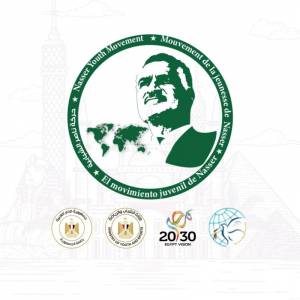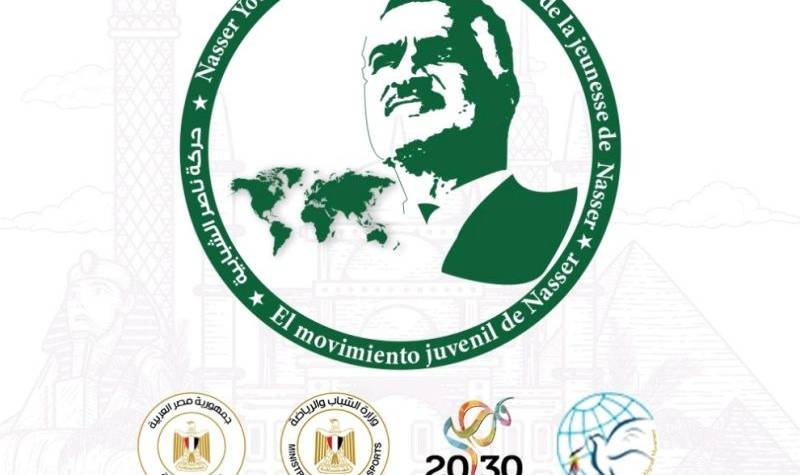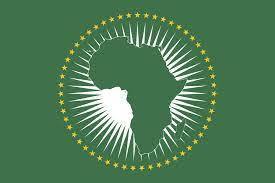APPLY! The 2022 Nasser Leadership Fellowship for Young African Leaders
The Nasser Leadership Fellowship for Young African Leaders is being held under the patronage of H.E. President of Arab Republic of Egypt Abdel Fattah El-Sisi. The 3rd batch will hold under the slogan: “South-South Cooperation and Non-Aligned Youth.“

Introduction:
The Nasser Fellowship for International Leadership is deemed to be complementary to Egypt’s ongoing efforts to play its mandated role in promoting the African youth role locally, regionally, continental, and internationally by providing all forms of support, habilitation and training, in addition to empowering them to occupy leadership positions, in order to benefit from their abilities and ideas. That was recognized by President El-Sisi at the World Youth Forum in all its editions.
The Nasser Leadership Fellowship is also one of the implementation mechanisms of the following: Egypt Vision 2030, 10 principles of the Afro-Asian People’s Solidarity Organization, Africa Agenda 2063, Sustainable Development Goals 2030, South – South Cooperation, African Union Roadmap through Investment in Youth, African Youth Charter and principles of the Non-Aligned Movement. By way of example, the Fellowship offers an equal opportunity to both genders as indicated in the 5th Goal of the 2030 Sustainable Development Goals.
The Fellowship also seeks to empower young people and give to actors from different countries of the world the chance to connect and forge partnerships in various fields, not only at the continental level but also at the international level, as referred to in the 17th Goal.
About the Nasser Fellowship for International Leadership:
The 1st Nasser Leadership Fellowship was held in June 2019 under the patronage of Egyptian Prime Minister Dr Mostafa Madbouly. The Fellowship targets young African executive leaders in many effective operational disciplines within their own communities, with the objective of popularizing Egypt’s development experience in firmly establishing its institutions and national character building.
The 3rd Nasser International Fellowship is expanded to include youth leaders from Asia and Latin America, in addition to the African continent. The 3rd batch is scheduled to be hosted under the patronage of President Abdel Fattah El-Sisi, President of the Arab Republic of Egypt.
Emerged from the Nasser Leadership Fellowship, “Nasser Youth Movement” in several African countries that adopt the principles endorsed by the founding fathers of the Organization of African Unity, calling for unity and solidarity between Africans and brotherly peoples who supported Africa as Asian and Latin American peoples.
The fellowship, in its third edition, aims to shed light on the role of Non-aligned youth in developing South-South cooperation in light of a rapidly changing world and how to develop this cooperation through youth as an effective and sustainable mechanism with a focus on the role of women. Therefore, the fellowship’s slogan this year was “South-South Cooperation and The Non-Aligned Youth Movement that will be handled historically and how to build a youth role for it in light of the recent international polarization in the international arena and the retreat of the so-called unipolar system and the gradual transition to a multipolar system, as well as activating the role of the youth network of the member states of the Non-Aligned Movement NYN in confronting the current challenges facing the youth of the member states of the movement.
The economic relations between the south-south in recent years have witnessed a steady growth, especially with many countries of the south achieving high rates of growth and economic performance. For example, the volume of trade exchange between the south and south increased more than three times since the eighties, and it is expected that the volume of this exchange will continue to rise Especially in light of the trade partnerships and economic agreements between those countries, such as the BRICS grouping or the recent linkage projects adopted by China, such as the land and sea Silk Road, the China-ASEAN Free Trade Zone and the African Continental Free Trade Zone. South-South trade represents about 60% of the total volume of international trade for those countries. The volume of Arab investments and the investments of rising and emerging economies in the countries of the South increased significantly to exceed about 20% of global investment flows. However, this cooperation needs more work and strengthening, especially in light of global economic and political changes, which may be an opportunity if seized to achieve more effective cooperation capable of achieving development in the countries of the region and promoting their integration into the global economy in a more effective and influential manner.
The reason behind naming the Fellowship after the late Gamal Abdel Nasser:
The Fellowship is named after the late leader Gamal Abdel Nasser as he is one of the greatest leaders for the people of developing nations (Africa- Asia- Latin America), in addition to being an exceptional leading figure. Nicknamed “Father of Africa”, Nasser is a quintessential political and historical example of the essence of leadership. As a leader, he sought to support the African Liberation Movements until it acquired independence. He also strongly contributed to the establishment of organizations that brought together the continents of Asia, Africa and Latin America, namely:
The Afro-Asian People’s Solidarity Organization which has fought resolutely and steadfastly -since its establishment in 1958- against apartheid and wars in order to achieve peace. It also supported the peoples’ struggle in Africa, Asia and Latin America.
The Non-Aligned Movement- established in 1961 under the leadership of Presidents Gamal Abdel Nasser / Josip Tito / Jawaharlal Nehru / Ahmed Sukarno- which played an important role in maintaining peace and security in the world. The Movement aimed to abandon the policies resulting from the Cold War between the eastern and western camps, noting that at the time, Cairo hosted the first preparatory meetings, leading to a positive diplomatic outcome on Egypt.
The Organization of African Unity -established in 1963- which is the 1st organization to shape the African integration, later known as the African Union.
The Organization of Islamic Cooperation which was founded after the arson attack on Al-Aqsa Mosque in 1969 to establish cooperation between Islamic countries. It is now the second inter-governmental organization in the world after the United Nations in terms of the number of Member States.
The link between the Nasser Fellowship and the South-South Cooperation:
The Nasser Fellowship is an example of the south-south cooperation, as it is one of the 2030 Sustainable Development Goals. It is worth noting that on September 12, 2019 the United Nations designated 12 September of each year as “The United Nations Day for South-South Cooperation”.
Among the Objectives of the South-South Cooperation are to:
Foster the self-reliance of developing countries by enhancing their creative capacity to find solutions to their development problems in keeping with their own aspirations, values and specific needs.
Increase and improve communications among developing countries, leading to a greater awareness of common problems and wider access to available knowledge and experience as well as the creation of new knowledge in tackling development problems.
Strengthen existing technological capacities in the developing countries and promote the transfer of technology and skills that are compatible with the resources and development capacities of developing countries, leading to enhanced individual and collective self-reliance.
Enable developing countries to achieve a greater degree of participation in international economic activities and to expand international cooperation for development.
Nasser fellowship and the Non-Aligned Movement
Nasser fellowship and the Non-Aligned Movement
The third edition of Nasser fellowship for International Leadership comes under the slogan “South-South Cooperation and the Non-Aligned Youth Movement”, so that we can discuss together the lessons learned from the Non-Aligned Movement, and its impact on the world in light of the intense and the current conflicts, and then lay out ways to reviving the principles of non-alignment, and formulating a new concept in line with the requirements of our time from youth perspectives.
The Fellowship will also focus on the new Non aligned movement Youth Network to help the participants to know more about the Youth Network and its goals. The Fellowship in its third edition is going to be launched under the slogan South-South Cooperation and Non-Aligned Youth”, which means that the fellowship will present the Non-Aligned Movement at the youth level So, it is expected that the participants will share their ideas and vision about the future of the Youth Network and fulfilling its goals, and work on submitting their recommendations to decision-makers and to heads of state and government of the Non-Aligned Movement at the next summit, because it represents a political force capable of influencing most of the current developments in the Middle East. The world, in the midst of this global environment charged with fears of a third world war, the world needs the energies of the youth and their adoption of the principles of the movement once more, in order to quell the voices of evil, violence and war in the world, and to build on the values of justice, peace and security on earth.
Place of implantation: Egypt
Period of implementation: Two weeks (from May 28 to June 17,2022)
Implementing body: Ministry of Youth and Sports
Under the patronage of: Mr. Abdel Fattah El-Sisi President of the Republic
Objectives of the fellowship
- Sharing Egypt’s long-standing experience in establishing and building national institutions.
- Creating a generation of young leaders from Non-Aligned States with a vision consistent with the South South Partnership.
- Raising the awareness of the historical and future role of the Non-Aligned Movement.
- Activating the role of the Youth Network of Members of the Non-Aligned Movement NYN.
- Linking the most influential young leaders at the level of non-aligned and brotherly states.
Target groups:
- The Fellowship targets 150 young executive leaders from the Non-Aligned state members and brotherly countries.
- 50% males, 50% females.
- Decision-makers in Public Sectors / AUYVC Alumni / Private Society Actors/representatives of the national branches of the Non-Aligned Movement Youth Network / civil society activists / Heads of National Youth Councils / Members of local Municipalities / Young Politicians -University Teaching staff /Researchers in political and humanitarian fields / Members of Syndicates / Journalists and Media Professionals /Social Entrepreneurs,..etc).
Africa Agenda 2063
*Aspiration 1: A prosperous Africa based on inclusive growth and sustainable development.
Well-educated and skilled citizenries empowered by science, technology and innovation constitute the basis for achieving a knowledge-based society; and no child shall miss school due to poverty or any form of discrimination.
Africa’s human capital shall be fully developed as its most valuable resource, including sustainable investments based on comprehensive development in the early childhood and primary education stages, as well as sustainable investments in higher education, science, technology, research, and innovation. Gender disparities at all levels of education shall be eliminated. Wider access to postgraduate studies shall be strengthened by ensuring a high-level infrastructure in the areas of education and research to support the scientific reforms, reinforcing change in the continent.
Africa shall establish equitable and sustainable use and management of water resources for social and economic development, regional cooperation, and the environment.
*Aspiration 2: An integrated continent, politically united based on the ideals of Pan Africanism and the vision of Africa’s Renaissance.
Since 1963, the search for African unity has been inspired by the spirit of comprehensive African unity -notably focused on liberation, political and economic independence- and driven by development based on African peoples’ self-reliance and autonomy under people-centered democratic governance.
*Aspiration 3: An Africa of good governance, democracy, respect for human rights, justice and the rule of law.
Africa shall establish capable institutions and transformative leadership at all levels.
Africa shall be an institutional continent, to the benefit of its people. Citizens shall be actively involved in the social, economic, political and administrative development. Efficient and professional public institutions based on laws and merit shall serve the continent, providing and effective and efficient public service. Institutions at all government levels shall be development-oriented, efficient, democratic and accountable.
A transformational leadership shall be established in all areas (politics – economics – religion – culture – institutional settings – youth and women) at the local, regional and continental levels.
*Aspiration 5: An Africa with a strong cultural identity, common heritage, values and ethics.
African unity, history, destiny, identity, common heritage, and respect for religious pluralism, as well as awareness of Africa’s people and its diaspora shall be consolidated.
Pan-Africanism shall be deeply rooted.
The ideals of Pan-Africanism shall be part of the education curricula.
Africa shall be a continent whose women and youth play a primordial role, as drivers of change, and intergenerational dialogue shall ensure that Africa becomes a continent adapted to social and cultural change.
*Aspiration 6: An Africa whose development is people-driven, relying on the potential of African people, especially its women and youth, and caring for children.
All African citizenries shall be actively involved in the decision-making process in all aspects.
Women shall occupy 50% of elected public office at all levels, and the economic and political glass ceiling facing women shall be shattered.
An Africa with empowered and participatory youth, with the full implementation of the African Youth Charter.
Africa shall be a continent where all forms of discrimination and exploitation against youth will have been eliminated.
Youth issues in all development agendas shall be mainstreamed.
African youth shall be the builders of the African knowledge-based society and significant contributors to the economy of the continent.
Creativity, energy and innovation shall be the driving force for African youth.
The AU Roadmap through Investments in Youth:
The roadmap was established pursuant to the resolution of the African Union Summit on youth (ASSEMBLY / AU / Dec.601 (XXVI)).
The resolution by the Executive Council ((XXII) (EX.CL/DEC.742) of January 14, 2014 called for the recognition of the demographic dividend in the economic and social development efforts on the continent.
The 4th pillar entitled “Rights, Governance and Youth Empowerment” in the roadmap emphasized: “Institute youth leadership and empowerment trainings aimed at deepening Pan African ideals and aspirations in the youth.”
The African Youth Charter
Article 10: Development
States Parties shall encourage youth organizations to lead youth programmes and to ensure the exercise of the right to development.
Provide access to information and education and training for young people to learn their rights and responsibilities, to be schooled in democratic processes, citizenship, decision-making, governance and leadership such that they develop the technical skills and confidence to participate in these processes.
Article 11: Youth Participation
States Parties shall take measures to promote active youth participation in society.
Facilitate the creation or strengthening of platforms for youth participation in decision-making at local, national, regional, and continental levels of governance.
Institute measures to professionalize youth work and introduce relevant training programmes in higher education and other such training institutions.
Article 12: National Youth Policy
A youth perspective shall be integrated and mainstreamed into all planning and decision-making as well as programme development. The appointment pf youth focal points in government structures shall enable this process.
The policy shall advocate equal opportunities for young men and for young women.
Article 13: Education and Skills Development
The value of multiple forms of education, including formal, non-formal, informal, distance learning and life-long learning, to meet the diverse needs of young people shall be embraced.
The preservation and strengthening of positive African morals, traditional values and cultures and the development of national and African identity and pride.
Avail multiple access points for education and skills development including opportunities outside of mainstream educational institutions e.g., workplace skills development, distance learning, adult literacy and national youth service programmes.
Article 20: Youth and Culture
Work with educational institutions, youth organizations, the media and other partners to raise awareness of and teach and inform young people about African culture, values and indigenous knowledge.
Promote inter-cultural awareness by organizing exchange programmes between young people and youth organizations within and across States Parties.
Engage young people and youth organizations to understand the nexus between contemporary youth culture and traditional African culture, and enable them to express this fusion through drama, art, writing, music and other cultural and artistic forms.
Article 23: Girls and Young Women
Ensure that girls and young women are able to participate actively, equally and effectively with boys at all levels of social, educational, economic and political, cultural, civic life and leadership as well as scientific endeavours
The 10 Principles of Bandung Conference:
The most important principles that align with the objectives of the Fellowship are:
- Respect the sovereignty and territorial integrity of all States.
- Adopt the principle of equality between all races, and all nations, large and small.
- Not to interfere in or be exposed to the internal affairs of other States.
- Promote common interests and cooperation.
- Respect justice and international obligations.
South-South Cooperation:
South-south cooperation refers to the development cooperation among countries in the Global South, in the political, economic, social, cultural, environmental or technical areas, in addition to the exchange of knowledge, experiences, know-how, solutions and technology, the creation of job opportunities, the establishment of infrastructure and promotion of trade in Southern countries. This acts as the manifestation of solidarity between the peoples and countries of the South, which contributes to achieving their national well-being and self-reliance nationally and collectively. This cooperation has contributed to increasing trade and foreign direct investment flow, as well as advancing towards regional integration among Southern countries. This cooperation can be bilateral, regional or interregional, and it can include two or more developing countries.
About Triangular Cooperation: it refers to the cooperation whereby developed countries and multilateral organizations facilitate South-South initiatives by providing financing, training, management and technology systems, in addition to other forms of support. The tripartite cooperation includes two or more developing countries in cooperation with a third party, usually a developed country or a multilateral organization, that contributes to achieving exchange through its knowledge and resources.
To Apply Click Here















